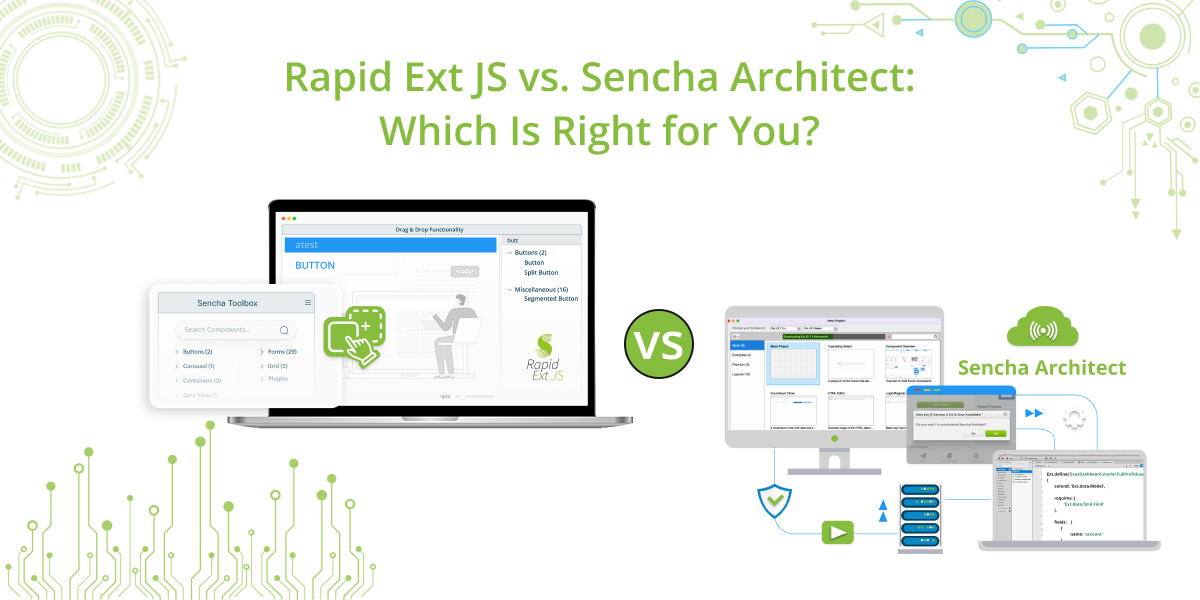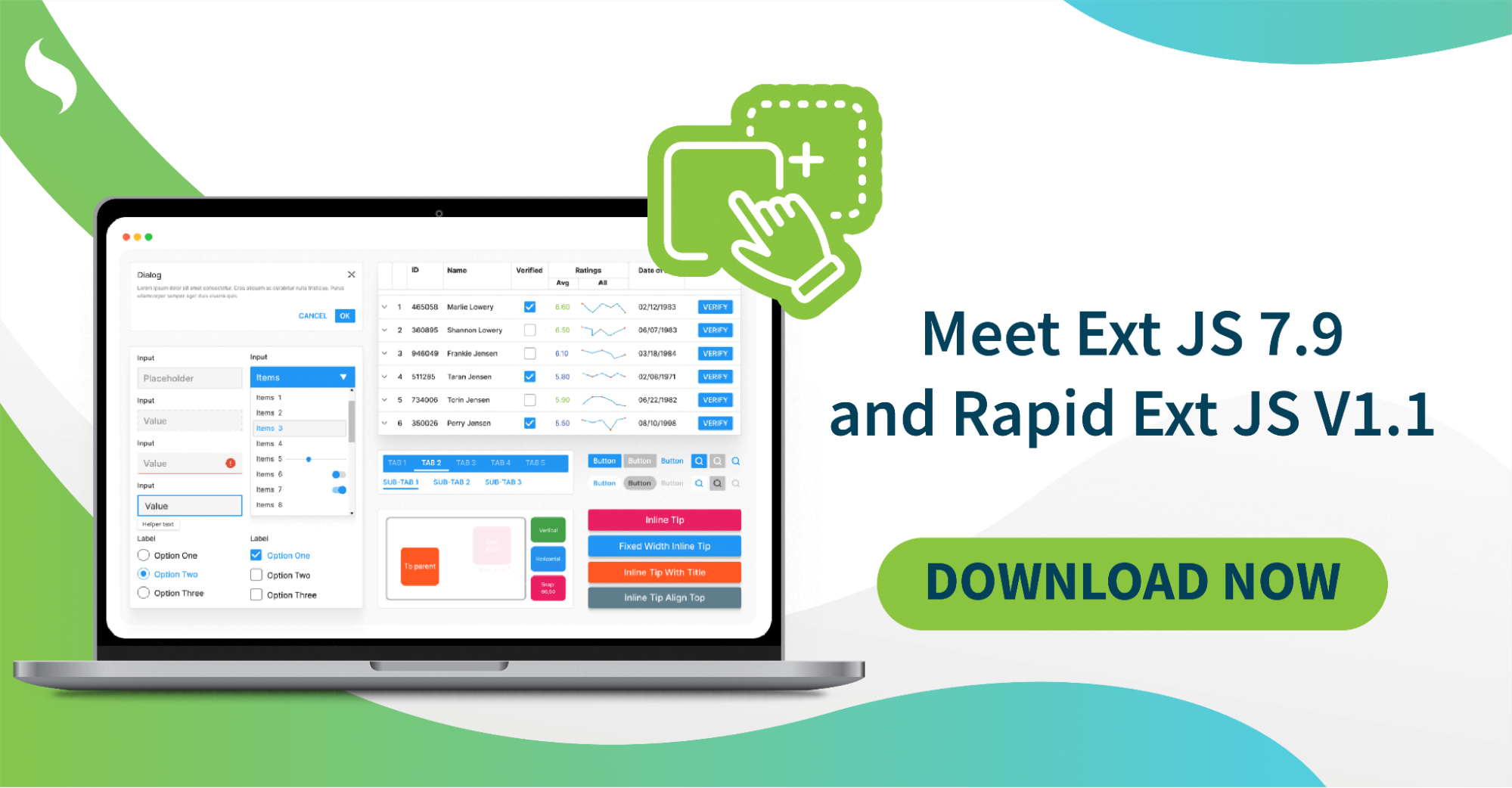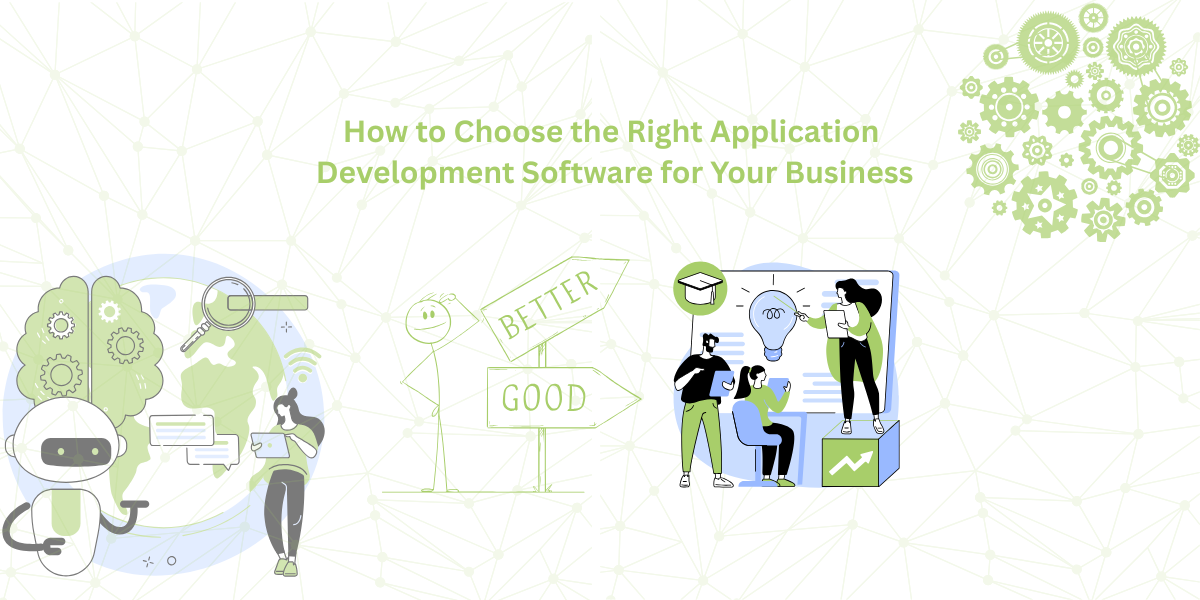The Ultimate Guide To Enterprise Software Application
Maintaining an enterprise-level organization involves an abundance of work and many challenges. Therefore, it will require an enterprise software application specific to its needs. Enterprise softwares leverage automation to the fullest extent and contribute to the effective functioning of organizations. Thus, enterprise applications have currently become the heart of many organizations.
What is Enterprise Software?

Enterprise software is software developed for large organizations, or enterprises, rather than for individuals. They help enterprises carry out their daily operations efficiently and at scale. Some of these tasks include customer service, data analysis, and sales and marketing. This software is typically designed to handle a huge amount of requests while serving a large user base.
The Importance of Enterprise Software

Enterprise software is the backbone of mission-critical, regular business operations in many organizations. Following are some major benefits enterprise software brings to organizations:
Scale Resources
Enterprise applications help organizations expand their business operations as they grow. On the other hand, you can also scale down the operations according to the needs of the organization. Then, the ESA will automatically adjust to meet your needs. This flexibility of enterprise solutions allows organizations to become cost-effective and spend money only on what they are actually using. Consequently, it will lead to better resource and budget management.
Boost Organizational Effectiveness
The implementation of an enterprise software application simplifies the workload of employees. As a result, it will reduce the required time and effort to carry out their daily tasks. It frees employees to focus more on important business functions like HR, marketing, and payroll, adding more value to the organization.
Increase Labor Productivity
An enterprise software application boosts employee productivity by automating routine, mundane tasks. Some ERP solutions, like project management software, allow employees to collaborate more productively on various projects. Additionally, tools and technologies like data analytics software, ML, and AI that ERP software utilizes help gain more valuable insights. Those insights are useful for improving the productivity of the whole organization. Finally, it will result in a higher ROI.
Increase Customer Satisfaction
The pros of enterprise application software go beyond the organizations and also benefit their customers. The company can get a better understanding of their customers since all the customer data is streamlined in a central location. It enables businesses to offer a personalized service to match the needs of specific customers. Additionally, enterprise apps like CRM software specialize in handling customers. Hence, they help build strong and durable customer relationships.
Features of Enterprise Software Application
Now, we have a good understanding of enterprise application software. Next, let’s see the prominent features of these enterprise software solutions.
- Robustness and the ability to scale depending on business needs.
- Widespread coverage.
- Centralized data management and the ability to handle large and complex data
- The ability to meet the complex and extensive needs of an enterprise.
- Flexibility and extensibility.
Types of Enterprise Software Applications
In this section, let’s go through main types of enterprise applications.

Enterprise Resource Planning (ERP)
Gone are the days when enterprise software companies used pens, papers and spreadsheets for inventory management, order processing and maintaining customer lists. Those traditional methods are time consuming and prone to errors as they heavily depend on humans. Besides, these processes get more complex and difficult as your company grows. Thus, it might be impossible to maintain the consistency of this data across various departments. Enterprise software definition involves creating a centralized database that every department can access. The data added or updated in that database will be reflected to all the users who access the software. Enterprise resource planning software includes several modules to manage different business processes at your company. Following are the main modules of ERP software.
- Inventory management
- Accounting
- Business process management
- Order management
- Customer service
- Human resources
- Shipping
SAP ERP, Microsoft Dynamics 365, and Oracle NetSuite are some best ERP software on the market.
Customer Relationships Management (CRM) or Customer Support
Effective customer relationship management is the key to the success of any business. CRM software helps customer service representatives carry out their jobs better, offering a detailed view of their relationships with each customer. Some of the key functionality that CRM software facilitates are order management, tracking leads, client communications, status tracking, and arranging advertising campaigns. With this kind of backing from CRM software, customer service representatives can generate more leads, market new services to clients, and make cross-sells. Some most popular CRM software among enterprises are Zoho, Hubspot, and Salesforce.
HR Management
Companies invest a significant amount of time and resources on HR management. However, these tasks get more cumbersome as the size of the organization grows. HRM enterprise asset management software comes into play here by automating essential HR related tasks such as recruitment, payroll, performance management, resource planning, reporting, and employee training. Workday, SAP, Ultimate Software, and Oracle are some popular HRM enterprise software solutions available for enterprises.
Supply Chain Management (SCM)
Simply put, supply chain management is managing the orderly process from manufacturing to storage, shipping, and final delivery of products. Usually, these tasks are handled by employees in different departments. In fact, poor supply management can lead to financial losses and damage the company reputation. Supply chain management software helps organizations maintain a robust flow of goods and services for constant production and delivery. They aid in the streamlining of all processes involved in the transformation of raw materials into finished products. Apart from manufacturing and inventory control, SCM software can also handle a variety of processes. For instance, they facilitate market forecasting, logistics, supply quest, and commodity transportation.
Marketing Automation
The manual marketing efforts will overwhelm the marketing department of a company as it expands. It will be impossible to conduct all these marketing activities manually once the company reaches a specific size. Marketing automation software comes in handy here by automating all of the essential marketing tasks. Some capabilities of marketing software include creating customized marketing campaigns, grouping audience, automating communication via social media and email, and pre-scheduling messages. Additionally, this software can help you measure the effectiveness of your marketing campaigns.
Email Marketing Systems
Email marketing systems help companies constantly market their new products to customers. Most importantly, Email is still the primary method of communication in organizations. Hence, these systems help businesses build strong and long-lasting relationships with their existing customers.
Business Intelligence (BI)
Business intelligence software helps companies analyze data collected from various sources and make actionable decisions depending on it. This software utilizes technologies such as data mining, advanced algorithms, and benchmarking to explore various trends and patterns in data. Then, companies can make realistic forecasts based on them. What’s more, BI software provides a dashboard that consists of a graphical representation of these findings in the forms of graphs, charts, bars, etc. They can also be downloaded as reports, which management can analyze further to aid in the decision-making process. This way, BI software helps businesses get a competitive advantage over other businesses. Sisence, Tableau and Microstratergy are some popular examples of enterprise BI software.
How is Enterprise Application Software Different from Other Software?
Now, let’s see how enterprise software deviates from other types of computer software. Basically, there are three types of software: system software, programming software, and application software.
System Software
System software sits between the application software and application software. It enables users to install and use application software. In other words, system software acts as base for enterprise resource planning softwares. This system software operates in the background and is not designed for end-users. However, they are essential for the functionality of computers and other devices that use them. Different operating systems, such as Microsoft Windows, MacOS, and Linux, are perfect examples of system software.
Programming Software
Enterprise-level software is designed for end-users and system software is designed for computers. Likewise, programming software is dedicated for software developers to aid in coding. For example, they provide programmers with the necessary tools to develop, build, test, and debug their code easily. Compilers, interpreters, debuggers, and assemblers are some popular programming software among developers. Furthermore, there are integrated development environments (IDEs) like Visual Studio Code, Eclipse, and Android Studio. They combine all the above mentioned programming software, offering a more robust custom enterprise software development environment.
Application Software
The best enterprise resource planning software is designed for end-users, providing various functionalities to fulfill their regular tasks. It can be installed or uninstalled on computers using system software. There is an abundance of application software on the market. Word processing software like Microsoft Word, WordPad, and NotePad, image editing software like Adobe Photoshop and Illustrator; and database software like MySQL, Microsoft SQL Server, and Microsoft Access, to name a few.
Choose the Most Appropriate EAS Solution from Sencha

Are you planning to build custom apps for your organization? Then, you can try to create enterprise applications with Sencha.
Sencha Ext JS is an amazing JavaScript framework for building enterprise computing software applications. It simplifies all the processes involved in the Software Development Lifecycle, offering a unique developer experience. Moreover, Sencha includes the best JS UI widgets for enterprise web apps, eliminating the need to create them from scratch. Thus, developers can easily build rich enterprise apps with interactive visual elements. In addition, Sencha Ext JS offers the best software build tools in the market. It allows developers to accelerate the enterprise software App Developement, reducing the time-to-market of enterprise apps. In brief, Sencha Ext JS is an all-in-one solution to create high quality, feature rich enterprise software applications. Do you want to experience the convenience of building enterprise apps with Sencha? Try Sencha Ext JS today
Conclusion
To conclude, enterprise management software applications are valuable tools for enterprises that cannot be matched by the human factor. They improve the efficiency of organizations by streamlining all the mission-critical business operations that are necessary for the survival of the organization. Many organizations rely on at least one of the types of risk management enterprise software applications due to their robustness, scalability, and reliability.
FAQs
What most popular types of enterprise application software among enterprises?
Customer Relationship Management (CRM) systems, ERP systems, HR Management systems, Email marketing systems, Supply Chain Management Systems and accounting software.
What are some key factors to consider when developing enterprise apps?
Automation, using modern technologies, data management and app security
What are some challenges associated with enterprise application development?
Having to adapt to changing requirements quickly, keeping up-to-date with technological advancements, ensuring app security, the need to handle large volumes of data and integrate with other systems.
What are the top enterprise app development trends in 2022?
Artificial Intelligence (AI), Blockchain, Internet of Things (IoT) and Cloud Computing
What Is Enterprise Resource Planning Software?
Enterprise resource planning ERP software manages core business functions. These include finance, human resources, and the supply chain. It improves decision-making and boosts productivity.
What Is Enterprise Asset Management Software?
EAM (Enterprise Asset Management) software tracks physical assets. It helps extend their lifespan. It also reduces maintenance costs.
What Are Three Types of Hosted Enterprise Software?
There are three types of hosted enterprise information management software. SaaS provides access to fully developed applications. PaaS allows access to enterprise software development tools. IaaS offers cloud infrastructure.
What Is Quickbooks Enterprise Software?
QuickBooks Enterprise is an advanced accounting enterprise risk management software for large businesses. It manages payroll. It handles inventory allocation. It also provides extensive custom reporting.
What Is Enterprise Resource Planning (ERP) Software?
ERP (Enterprise Resource Planning) software unifies multiple business functions. An enterprise resource management software ensures data accuracy. It automates processes. It improves efficiency.
How Much Does Enterprise Software Cost?
Enterprise performance management software costs depend on features, users, and setup. Prices range from thousands to millions per year.
Who Are the Leading Enterprise Software Vendors?
Some well-known enterprise project management software providers are SAP, Oracle, Microsoft, Salesforce, and IBM. They offer solutions for enterprise business operations
What Is Enterprise Application Software?
Enterprise Application Software (EAS) manages key business functions. These include finance, human resources, and customer relationships.
What Is Enterprise Level Software?
Enterprise software is built for large organizations. It handles large data volumes. It supports complex workflows. It manages heavy user traffic.
What Is Enterprise Computing?
Enterprise computing involves large-scale IT systems. It supports business processes, data management, and communication.
What Is the Core Function of an Enterprise Platform?
An enterprise platform integrates business applications. This simplifies workflows. It enhances data integration.
What Is an Enterprise System?
An enterprise system is a software suite. It manages ERP, CRM, and SCM. It ensures seamless integration and automation of business functions.
What Is Enterprise Application?
Enterprise applications focus on finance, human resources, and logistics. These functions are essential to business operations.

When it comes to developing robust, enterprise-grade web applications, Sencha provides some of the most…

The Sencha team is excited to announce the latest Ext JS version 7.9 and Rapid…

It is important to select the best app development software with proper instructions that enhance…









